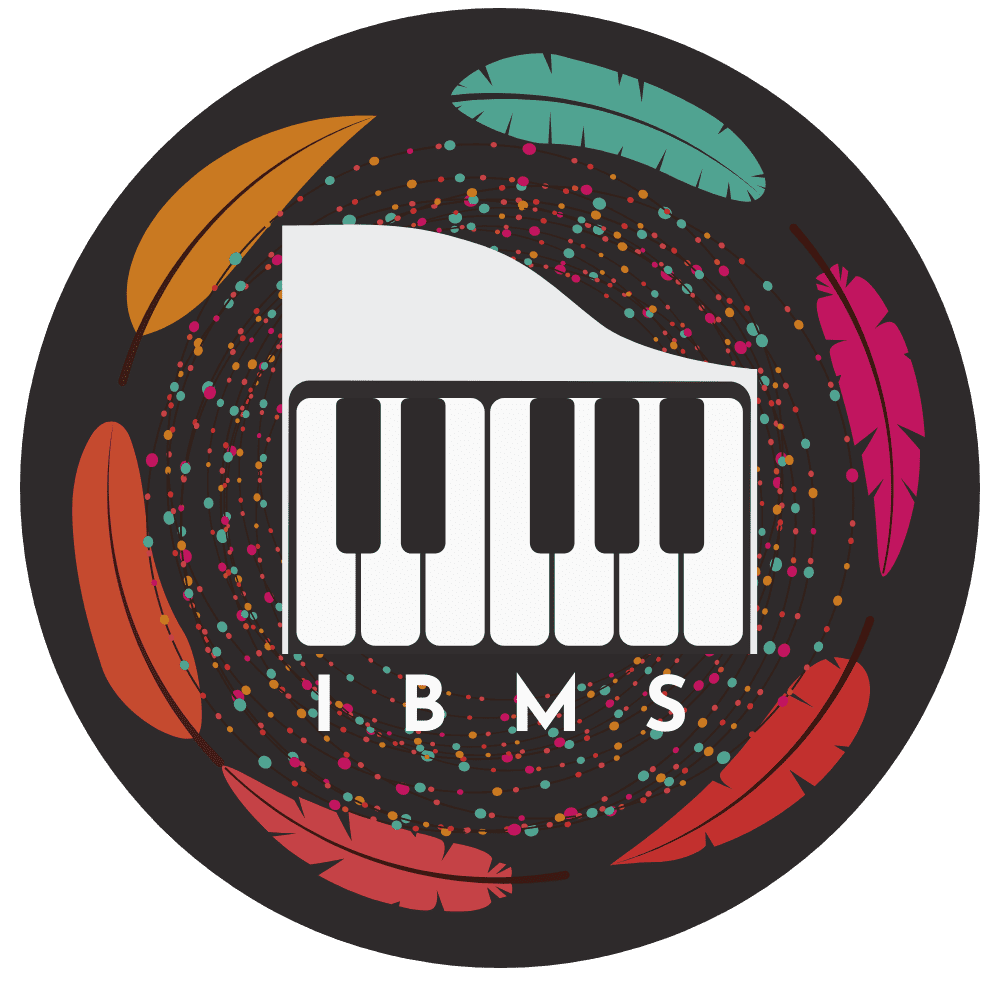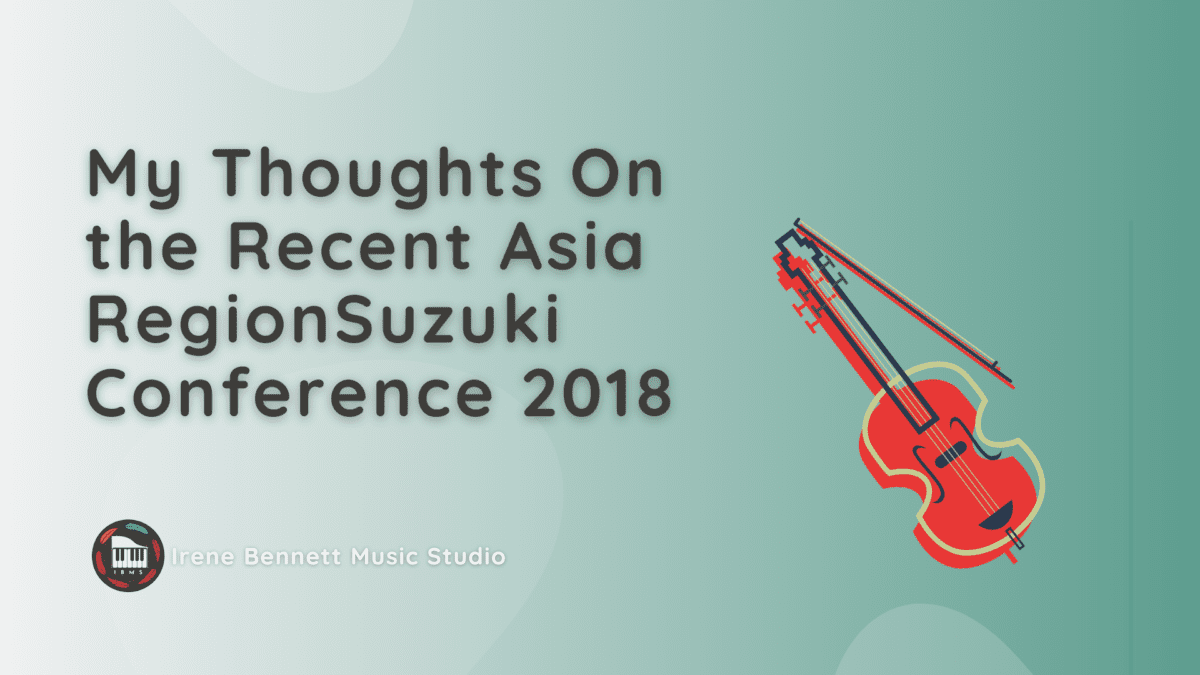I recently attended the 7th Asia Region Suzuki Conference 2018 held at Treston International College, Taguig City from July 1-5. The theme was Art to Heart: Nurturing Children’s Hearts through Music. I admit, it has been awhile since I last attended a conference geared to enhance my professional side. So I was quite excited to attend this one, especially because it’s going to be held in the Philippines.
First day high
The first day was geared towards enhancing the teachers’ knowledge about the Suzuki philosophy and method. The morning was spent listening to the talks of Paul Landefeld, Bruce Anderson, and Zeah Riordan. I am not really steeped into the who’s who of the Suzuki world, but apparently, Mr. Landefeld and Mr. Anderson were some of big names in the field for having been trained in Japan under Dr. Suzuki and Dr. Kataoka themselves.
After lunch, a breakout session was held for piano teachers where two lecturers shared their experiences in teaching. Zohara Rotem focused on how to connect with the child emotionally. She gave several tips on what particular words to use during lesson time, how to react to what children say, how to persevere especially when the students have some emotional issues. I personally learned alot because recently, I’ve been trying to see where I can put the balance between friend, teacher, confidante and guide when it comes to relating to my piano students.
The next and final lecture to piano teachers was on deliberate practice. Marzena Siudsiska emphasized the importance of practicing effectively and how this habit can be reinforced in teaching. Instead of boring us with the nuts and bolts of practicing, she gave a very creative analogy of a person preparing food. I can totally relate to this because I love doing both.
As a teacher tho, we have a responsibility to keep our craft sharp — and this can be done by deliberate practice, not by duty, but because we love what we do.
Expectations from the conference
One of the biggest expectations I had from this conference was that there will be more time allotted for teacher training. There were definitely no lectures for teacher delegates after the first day. Rather, time was spent on classes for the student delegates in preparing them for the final performance at the end of the conference. For teachers to learn more, we would just have to observe how classes were done, how the lesson flowed, what solutions the master teacher devised when confronted with problems, and of course, a lot of parent education as the lesson flowed.
Of course, not all master teachers taught this way. Many of them merely listened to the children, gave several tips and then called for the next child to play. Others treated the class as an audition, to check who will mess up or not in a piece. After a few minutes observing those teachers, I decided to stick with three master teachers who were more deliberate in teaching. During the last day of classes, I followed only one teacher because I realised I was really learning so much from her.
Words are not enough to really describe the depth and breadth of wisdom I have gathered from this conference. Not to mention the inspiration and encouragement about what I’m already doing as a piano teacher. With that being said, I am still confronted with so many questions. But one burning question was: As an Adventist musician, how do I apply what I’ve learned, and still use the piano lessons as a medium to prepare the students to serve God?
Tailoring this knowledge to adapt to my own lessons
I ask this question because as great as the effect of music lessons are, especially classical music, to children’s brain developments; as natural as it is to use the Suzuki method; as wonderful as it is to have a good and sensitive heart as a result of learning to play this kind of music — this is not the only thing an Adventist child must glean from a lesson given by an Adventist teacher. There should be more.
This is something I don’t expect to learn from the said conference. However, this is something I strive to give as I seek to teach the child the nuances of music and how to play the piano beautifully.
God gave us the gift of music to be enjoyed and to touch people’s hearts, yes, but more so, to use music to worship and praise Him. How then do I teach the child that music is to be used more especially for the latter purpose?
In the classical music circles, it is expected to develop a child’s skill to the utmost — and to have that skill be validated by a premium lineage of mentors studied with, the lineup of festivals and events participated and attended, and of course, the number of awards won. This is the natural pathway paved for every “successful” musician.
But how do I develop the child’s skill to be a devoted and faithful church musician? How do I, as an Adventist musician, expose my students to that type of unique responsibility without having to worry about how they compare with their peers and with the world?
I believe that it is not enough to merely train a Christian child how to play beautifully. They should also be taught the why and for Whom. If piano lessons are not tailored this way, then I fail as an Adventist piano teacher.

